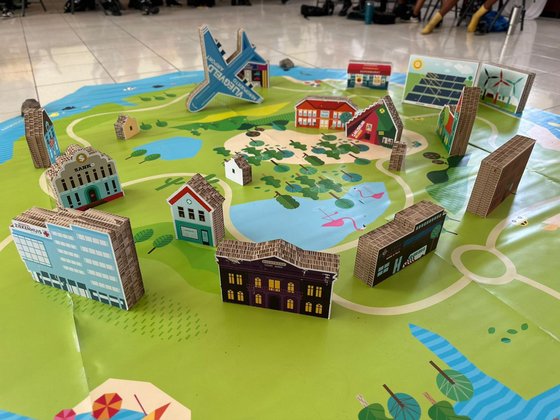This initiative came to life in local schools, marking a major step towards fostering civic awareness among Statia’s youth.
From Monday, 6 to Thursday, 9 October 2025, the Civic Education Statia Programme was officially launched across all primary schools on the island. The initiative aims to deepen pupils’ understanding of civic life, citizenship, and democratic participation.
Pupils from Groups 7 and 8 of the Governor de Graaf School, Seventh-day Adventist School, Bethel Methodist School, and Golden Rock Roman Catholic School enthusiastically took part in a series of interactive sessions introducing them to the principles of civic engagement and community involvement.
The launch marks an important step in promoting civic awareness and empowering the next generation of Statians to play an active role in their island’s democratic processes.
During the Civic Education Programme, pupils experienced what it feels like to serve as elected representatives and make key decisions for their island through a simulation exercise called Democracity.
Participants learned to collaborate and share responsibilities within their assigned political parties. Each pupil assumed a key role such as Party Leader, Secretary, Spokesperson, or Party Member. Together, they developed a party manifesto, name, and slogan, which they later presented to the other student parties.
Following this, the parties were tasked with selecting and prioritising proposed buildings for their island. In successive rounds, pupils debated, defended, and lobbied for their choices, learning to negotiate, compromise, and make decisions with limited resources.
The programme provided valuable insights into the workings of democracy, teamwork, and the importance of collective decision-making. It was both engaging and educational, giving young participants a deeper appreciation of what it means to contribute to their community.
The Civic Education Statia Programme was facilitated by the Registrar’s Office and Social Domain, whose leadership and guidance helped make the sessions both informative and inspiring for all participating pupils.
Looking ahead, the programme aims to be conducted twice per school year, ensuring that pupils continue to build on their understanding of democracy and recognise how it influences their lives, choices, and future as active citizens.
